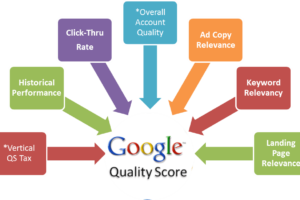In today’s fast-paced digital landscape, startups are constantly seeking innovative solutions to gain a competitive edge and accelerate growth. One of the most powerful tools at their disposal is artificial intelligence (AI). AI technologies have the potential to revolutionize various aspects of business operations, from customer service and marketing to product development and logistics. However, integrating AI into a startup’s operations can be a daunting task. In this blog post, we’ll explore some strategies for startups to effectively integrate AI and leverage its power for sustainable growth.
Read More: Explore How WordPress Websites Generate Their Revenue
AI Strategies For Startups
- Identify Problem Areas: Before diving into AI integration, startups should identify specific problem areas or opportunities where AI can make a significant impact. Whether it’s optimizing internal processes, improving customer experiences, or enhancing product features, having a clear understanding of the pain points will guide the AI implementation strategy.
- Start Small, Scale Fast: It’s tempting to go all-in with AI implementation, but startups should resist the urge and start small. Begin with pilot projects or proof-of-concepts to test the feasibility and effectiveness of AI solutions. Once successful, gradually scale up implementation across different departments or functions.
- Data, Data, Data: Data is the lifeblood of AI. Startups need to ensure they have access to high-quality data that is relevant to their business objectives. This may involve collecting data from various sources, cleaning and preprocessing it to ensure accuracy, and establishing robust data governance practices to maintain data integrity and security.
- Collaborate with AI Experts: Startups may not always have the in-house expertise required for AI development and implementation. Collaborating with AI experts, whether through hiring talent or partnering with AI service providers, can provide invaluable support and guidance throughout the integration process.
- Focus on User Experience: Whether it’s developing AI-powered products or implementing AI-driven automation, startups should prioritize the user experience. AI should enhance usability, convenience, and satisfaction for both customers and internal users. Soliciting feedback and iterating based on user insights is essential for continuous improvement.
- Embrace Agile Methodologies: Traditional development methodologies may not be well-suited for AI projects, which often require iterative experimentation and adaptation. Embracing agile methodologies allows startups to rapidly prototype AI solutions, gather feedback, and pivot as needed to stay aligned with business goals and market demands.
- Compliance and Ethics: As AI becomes more pervasive, startups must prioritize compliance with regulations and ethical considerations. This includes ensuring data privacy and security, mitigating bias in AI algorithms, and being transparent about how AI is being used. Building trust with stakeholders is crucial for long-term success.
- Measure and Iterate: Implementing AI is not a one-time effort but an ongoing journey. Startups should establish key performance indicators (KPIs) to measure the impact of AI on business outcomes and regularly monitor and analyze results. Based on insights gained, iterate on AI models and strategies to optimize performance and drive continuous improvement.
In a Nutshell
In conclusion, integrating AI into startup operations can be a transformative endeavor, unlocking new opportunities for innovation, efficiency, and growth. By following these strategies and approaching AI implementation with a strategic mindset, startups can harness the full potential of AI to gain a competitive edge in today’s dynamic business landscape.











